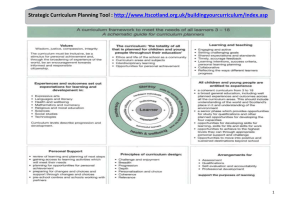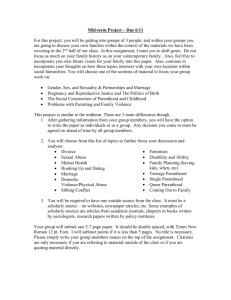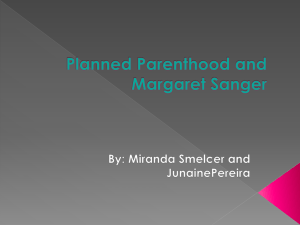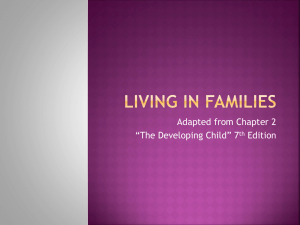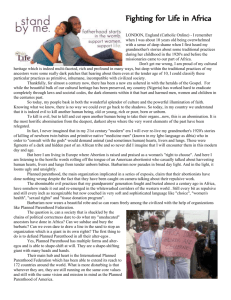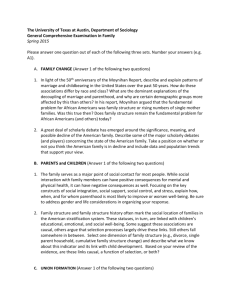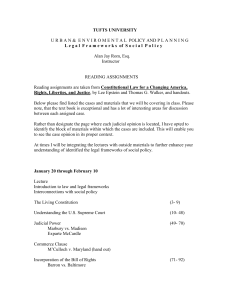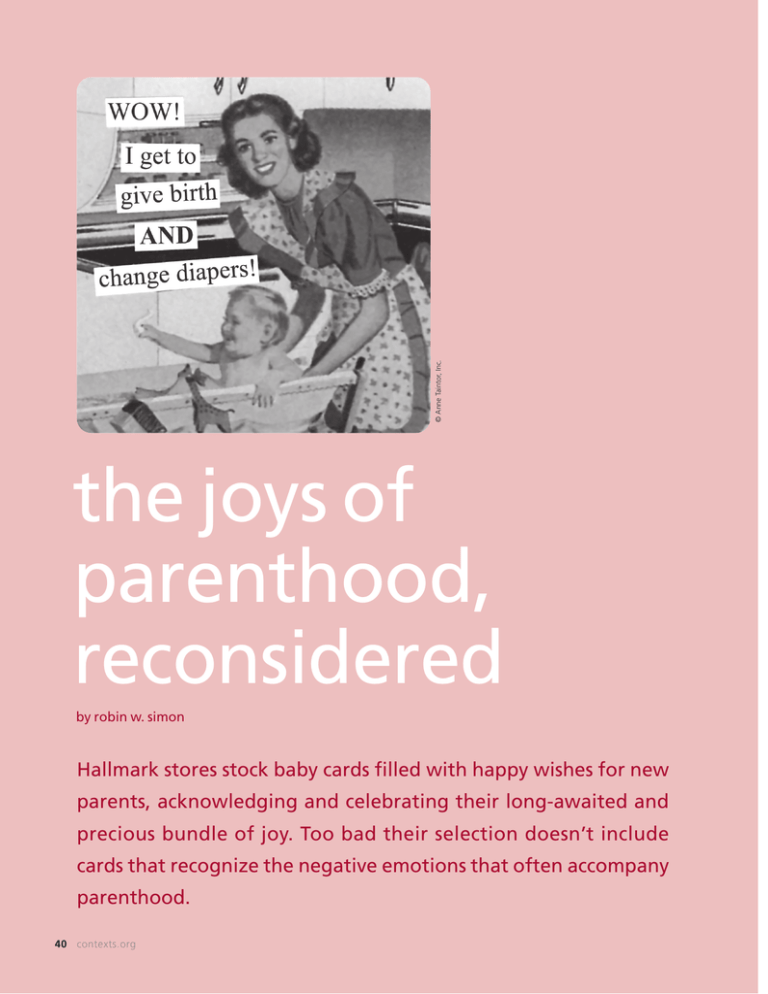
© Anne Taintor, Inc.
the joys of
parenthood,
reconsidered
by robin w. simon
Hallmark stores stock baby cards filled with happy wishes for new
parents, acknowledging and celebrating their long-awaited and
precious bundle of joy. Too bad their selection doesn’t include
cards that recognize the negative emotions that often accompany
parenthood.
40 contexts.org
Perhaps they should. Sociologists find that as a group, parents
in the United States experience depression and emotional distress
more often than their childless adult counterparts. Parents of
young children report far more depression, emotional distress,
and other negative emotions than non-parents, and parents of
grown children have no better well-being than adults who never
had children.
That last finding contradicts the conventional wisdom that
empty-nest parents derive all the emotional rewards of parenthood because they’re done with the financially and psychologically taxing aspects of raising young kids.
These research findings, of course, fly in the face of our
cultural dogma that proclaims it impossible for people to achieve an emotionally
fulfilling and healthy life unless they
become parents. And that’s a problem,
because the vast majority of American
men and women eventually have children, yet conditions in our society make
it nearly impossible for them to reap all
the emotional benefits of doing so.
to the way we respond to adults who either can’t or choose
not to have children. Because our culture equates childlessness
with feelings of sadness, loneliness, emptiness, purposelessness, and meaninglessness—particularly as men and women
approach the golden years, when the emotional rewards of parenthood are assumed to be at their peak—we feel sorry for and
pity childless adults. We assume it’s difficult, if not impossible,
for them to have an emotionally fulfilling life without offspring.
We also assume that those who are voluntarily child-free are
selfish, unhappy, and will regret their decision after it’s too late.
In her 1995 book on childlessness and the pursuit of
happiness, Elaine Tyler May writes that in light of our cultural
the greatest gift life has to offer
idealization of children, many reproductively challenged
Americans subject themselves to expensive and invasive medical procedures in order to procreate. Heterosexual women and
lesbians are increasingly conceiving offspring through in vitro
fertilization, while heterosexual couples and gay men often turn
to adoption and sometimes surrogacy to become parents.
Culturally, we encourage those who can’t have biological
children to adopt—an idea buttressed by the highly publicized
recent overseas adoptions among the Hollywood elite. There are
no reliable estimates of the percentage of conceptions through
artificial insemination or surrogacy, but between 2 percent and
4 percent of adults in the United States adopt children at some
point in their lives.
Only in recent years have the media provided an alternative
to the idealized portrayal of parenthood that has dominated the
cultural landscape since the 1950s—a period marked by a strong,
positive outlook on having children. Television shows like
Roseanne and films like Parenthood that appeared in the 1980s
debunked the overly romanticized conceptions of parenthood
that had loomed large in our culture, portraying parents of young
children as exhausted, frustrated, and at their wits end. Some
recent films like Meet the Parents and television shows like
Everyone Loves Raymond and Brothers and Sisters also depict
strained relationships between empty-nest parents and their
adult children.
But we’re not deterred. These darker, though perhaps more
realistic, portrayals of parenthood notwithstanding, most of us
still adhere to the cultural belief that there’s no better guarantee of a happy, healthy, and emotionally rich and rewarding life
than having children, who are presumed to be “worth” the
Most of us adhere to the cultural belief that
there’s no better guarantee of a happy, healthy,
and emotionally rich and rewarding life than
having children.
Americans harbor a widespread, deeply held belief that no
adult can be happy without becoming a parent. Parenthood,
we think, is pivotal for developing and maintaining emotional
well-being, and children are an essential ingredient for a life
filled with positive emotions like happiness, joy, excitement,
contentment, satisfaction, and pride. Even more than marriage
and employment, our culture promotes the idea that parenthood provides a sense of purpose and meaning in life, which
are essential for good mental health.
As a result, we encourage men and women to have
children in a variety of subtle and not so subtle ways. Then,
we congratulate them when they become parents with baby
showers, flowers, balloons, and cigars. These and other
cultural celebrations of the transition to parenthood reflect,
reinforce, and perpetuate Americans’ beliefs that there’s no
better guarantee of achieving an emotionally fulfilling and
healthy life than having children.
And most fall right in step. The vast majority of men and
women in the United States become parents either through
birth, adoption, or marriage. The 20th century witnessed important changes in the timing of parenthood (men and women
are now deferring it until they’re older, compared to previous
generations), yet demographers have found that sooner or
later about 80 percent of the adult population has biological
children. Nothing indicates a decline in the near future as
cohorts of young adults who are currently childless are still in
their childbearing years.
These cultural beliefs about the importance of parenthood
for achieving a happy and emotionally healthy adulthood extend
Contexts, Vol. 7, No. 2, pp. 40-45. ISSN 1536-5042, electronic ISSN 1537-6052. © 2008 American Sociological Association.
All rights reserved. For permission to photocopy or reproduce see http://www.ucpressjournals.com/reprintinfo.asp. DOI:
10.1525/ctx.2008.7.2.40.
Spring 2008 contexts 41
parents their own age. Several other studies based on different
national surveys of adults also indicate that parents currently
raising children are significantly more depressed and emotionally
distressed than childless adults. Many others have found that
living with minor children is associated with significantly lower
levels of psychological well-being. The details of these studies
can be found in a 2005 Journal of Health and Social Behavior
article I wrote with Evenson, as well as McLanahan and Adam’s
1987 Annual Review of Sociology article.
Additionally, Leda Nath and I studied Americans’ everyday emotional experiences as reported on the General Social
Survey, a nationally representative sample of more than 1,400
adults. It revealed that parents residing with minor children
report significantly less frequent positive feelings (calm, contentment) but significantly more frequent negative feelings
(fear, anxiety, worry, anger) than adults not living with young
financial and psychological costs associated with raising them.
Although most people today would probably agree that parenthood is often challenging, sometimes difficult, and involves
continual self-sacrifice, periodic disaster, and occasional
heartache—particularly when children enter the tumultuous
adolescent years—our culture continues to promote the idea
that the emotional rewards associated with parenthood far outweigh the personal costs.
numbers show otherwise
levels of emotional well-being, less frequent positive emotions,
and more frequent negative emotions than their childless peers.
Sara McLanahan and Julia Adams first summarized the evidence on parental status differences in mental health 20 years
ago, but similar findings are evident in
more recent research.
For example, a recent study I conducted with Ranae J. Evenson based on
the National Survey of Families and
Households—which includes a nationally representative sample
of more than 10,000 adults in the United States—revealed that
parents report significantly more symptoms of depression
(feelings of sadness, loneliness, restlessness, and fear) than non-
© Anne Taintor, Inc.
© Anne Taintor, Inc.
Contrary to all of this, sociological research based on
national surveys of American adults finds an association
between parenthood and depression, emotional distress, and
other negative emotions. While studies indicate parents derive
more purpose, more meaning, and greater satisfaction from
life than non-parents, they also reveal parents experience lower
children. We further found that full-nest parents don’t report
more frequent feelings of happiness, excitement, joy, and pride
than adults not residing with dependent offspring. Based on
another national survey, Catherine E. Ross and Marieke Van
Sociological research finds an association between
parenthood and depression.
42 contexts.org
Willigen also found that parents with young children in the
home are angrier than adults not living with kids.
Conventional wisdom tells us the emotional rewards of
having children are fewest during the “full-nest” stage and
For example, research finds that single parents report higher levels of depression and emotional distress than married and
cohabiting parents. Unemployment exacerbates the negative
emotional effects of parenthood involving young children,
greatest during the “empty-nest” stage of parenthood. Free
of the onerous financial and psychological responsibilities
associated with raising young offspring, empty-nest parents
are ostensibly able to focus on the love, friendship, companionship, emotional support, and all
sorts of assistance they receive from
their adult children. Indeed, Debra
Umberson’s research on parent-adult
child interaction in the United States
indicates that most parents have
frequent contact with their non-resident adult children, often speaking
with them at least once a week.
However, studies based on recent national surveys indicate
that empty-nest parents report similar levels of well-being as childless adults their own age. As a matter of fact, Evenson and I
Parents experience lower levels of emotional
well-being, less frequent positive emotions, and
more frequent negative emotions than their
childless peers.
particularly for men. Parents with lower levels of education and
household income also experience higher levels of depression
and emotional distress than their more advantaged peers. And,
not surprisingly, parents who enjoy satisfying relationships with
their children report greater emotional well-being than parents
who have unsatisfying relationships with their offspring.
But, while these social characteristics influence or moderate the association between parenthood and mental health,
little evidence exists that parenthood actually improves adults’
emotional well-being. In fact, most evidence seems to point
to the contrary.
© Anne Taintor, Inc.
the stresses of parenthood
found no group of parents that reports significantly greater emotional well-being than people who never had children. This goes
for married parents, cohabiting parents, single parents, non-custodial parents, and stepparents, as well as for fathers versus mothers, despite the fact that epidemiological research documents
women’s less frequent positive emotions, more frequent negative
emotions, and higher levels of depression and emotional distress
than men in general.
It’s important to emphasize that while parents aren’t any
emotionally better off than their childless counterparts, parents’
other social statuses—particularly their marital, employment,
and socioeconomic status—influence the association between
parenthood and mental health.
Why doesn’t parenthood have the positive emotional
effects on adults that our cultural beliefs suggest? The answer
to this question lies in the social conditions in which Americans
today parent—they’re far from ideal for allowing them to reap
the full emotional benefits of having children. Parents are
exposed to a number of different stressors that cancel out and
often exceed the emotional rewards of having children. Making
matters worse, parents and others perceive this stress as a
private matter and reflective of their inability to cope with the
“normal” demands of having children.
In their research examining change in the association
between parenthood and psychological well-being from the
1950s to the 1970s, McLanahan and Adams found parenthood was perceived as more stressful and was more closely
associated with emotional distress in the 1970s than in the
1950s. Much of this trend was due to changes in the employment and marital status of parents, they said.
A significant source of parental stress stems from the
extraordinarily high financial cost of raising a child to adulthood these days. Even the basics such as food, clothing, and
(for those who have it) healthcare are expensive, not to mention extracurricular activities parents feel compelled to provide
their kids. Although the figures vary depending on parents’
household income, the U.S. Department of Agriculture estimates families spend anywhere from $134,370 to $269,520
raising a child from birth through age 17. These figures don’t
Spring 2008 contexts 43
include the astronomical cost of a college education; the
College Board reports tuition alone is presently more than
$20,000 at state universities, more than $80,000 at private
universities, and continues to rise by an average of 6 percent
to 7 percent each year.
Indeed, the increasing cost of
raising kids is one factor that contributed to the large number of mothers who joined the labor force in the
second half of the 20th century.
Demographers estimate 70 percent of
children in the United States are currently being raised in households in which all adults work outside the home. However, as Jennifer Glass and others point out,
there’s a fundamental incompatibility between employment and
raising children, which makes juggling parenthood and paid
work highly stressful.
Arlie Hochschild was the first to document that the lack of
flexible work schedules, high-quality and affordable child
care for preschool-aged children, and after-school care for
elementary-aged children all contribute to stress from what’s
now commonly referred to as the “second shift” for employed
parents, particularly employed mothers, who leave their jobs at
5 o’clock only to start another job caring for children at home.
However, there are few policies or programs to alleviate the
stress. In the end, our collective response to “stressed out”
employed parents is that they need to become better organized.
Although financial stress and the stress of the second shift
subside as children age and become independent, the majority
of parents continue to be involved in their adult offspring’s lives
and worry about them. Among other things, parents worry
about their grown children’s financial well-being, their social
relationships, their happiness, and both their mental and physical health. These observations have led sociologists to conclude
that parenthood is the quintessential job that never ends.
Parents also shoulder the daunting responsibility for the
development and well-being of another person, and our culture places high expectations on them for the way children
“turn out.” Irrespective of their children’s age, we question
parents’ childrearing skills when they have problems. In fact,
the way children turn out seems to be the only measure our
culture offers for assessing whether men and women are
“good” parents.
Alice S. Rossi has argued that unlike other societies,
Americans receive relatively little preparation for parenthood
and most parents raise their children in relative social isolation
with little assistance from extended family members, friends,
neighbors, and the larger community. At the same time, parents
alone are accountable for raising children to be moral, responsible, intelligent, happy, healthy, and well-adjusted adults, and
this awesome responsibility doesn’t end when children are
grown.
shifting the reward-cost analysis
Children provide parents with a sense of immortality, an
important social identity, and emotional connections to extended family members and people in their communities. Children
We need to reevaluate existing cultural beliefs that
children improve the emotional health and wellbeing of adults.
44 contexts.org
© Anne Taintor, Inc.
fulfill some basic human desires—including having someone
to love and nurture, carrying on family traditions, and allowing us to become grandparents. Watching children grow and
develop is enjoyable and parents feel comforted by the per-
ception that they won’t be alone to fend for themselves in old
age. The parent-child relationship is perhaps the most important and enduring social bond in the lives of individuals, which
is probably why parents derive more purpose and meaning in
life than adults who never had children.
At the same time, the emotional benefits of having children are often overshadowed by the onerous demands and
stressors associated with the role. Although experienced by
mothers and fathers at a deeply personal level, the stressfulness
of contemporary parenthood is firmly rooted in the social conditions in which people parent as well as our current social,
economic, and cultural institutions.
In America we lack institutional supports that would help
ease the social and economic burdens—and subsequent stressfulness and emotional disadvantages—associated with parenthood. Instituting better tax credits, developing more and better
day care and after school options, as well as offering flexible
work schedules for employed mothers and fathers would go far
toward alleviating some of the stress for parents raising children.
However, providing these forms of assistance is only part
of the solution, since parents whose children are grown don’t
report higher levels of emotional well-being than childless
adults their own age. Affordable health care would insure individuals’ basic health needs are met and would, therefore, lessen
this lingering source of stress for all parents—irrespective of
their children’s age. Although there are no existing studies that
systematically compare the mental health of parents and childless adults in other countries, it’s likely that parents residing in
societies with family-friendly and other social welfare policies
enjoy better mental health than parents in the United States.
Of equal importance is the need to take stock of and
reevaluate existing cultural beliefs that children improve the
emotional health and well-being of adults. These cultural
beliefs—and our expectations that children guarantee a life
filled with happiness, joy, excitement, contentment, satisfaction, and pride—are an additional, though hidden, source of
stress for all parents. Indeed, the feelings of depression, emotional distress, and other negative emotions parents experience on a daily basis may cause them to question what they’re
doing wrong. These negative emotions may also lead parents
with children of all ages, especially mothers, to perceive themselves as inadequate since their feelings aren’t consistent with
our cultural ideal.
To this end, reducing the enormous and unrealistic cultural expectations we have for parenthood is as important as
greater cultural recognition of the unrelenting challenges and
difficulties associated with having children of all ages. Although
there’s no guarantee these changes would drastically improve
the emotional lives of American mothers and fathers, at least
they would help minimize the emotional costs and maximize
the emotional benefits of parenthood in the United States
today.
recommended resources
Jennifer Glass. “Envisioning the Integration of Family and Work:
Toward a Kinder, Gentler Workplace,” Contemporary Sociology
29 (2000): 129–143. A provocative discussion of the incompatibility between raising children and women’s success at work in the
United States and factors underlying it.
Sara McLanahan and Julia Adams. “The Effects of Children on
Adults’ Psychological Well-Being: 1957–1976,” Social Forces 68
(1989): 124–146. A classic study comparing the mental health of
parents between the 1950s and 1970s.
Elaine Tyler May. Barren in the Promised Land: Childless Americans
and the Pursuit of Happiness (Harvard University Press, 1995). An
engaging historical analysis of public attitudes about the link
between happiness and parenthood.
Kei M. Nomaguchi and Melissa A. Milkie. “Costs and Rewards of
Children: The Effects of Becoming a Parent on Adults’ Lives,”
Journal of Marriage and the Family 65 (2003): 356–374. A comparison of six dimensions of adults’ lives between childless adults
and adults who transitioned to parenthood.
Catherine E. Ross and Marieke Van Willigen. “Gender, Parenthood,
and Anger,” Journal of Marriage and the Family 58 (1996):
572–584. A study showing that economic stress and stress associated with child care increase feelings of anger among parents—
particularly among mothers.
Viviana A. Zelizer. Pricing the Priceless Child: The Changing Social
Value of Children (Basic Books, 1985). The seminal historical
account of change in the value of children to parents from being
economic assets to being emotionally priceless.
Robin W. Simon is in the sociology department at Florida State University.Among
other research topics she is currently examining the relationship between gender,
anger, and distressing emotions among adults.
Spring 2008 contexts 45

